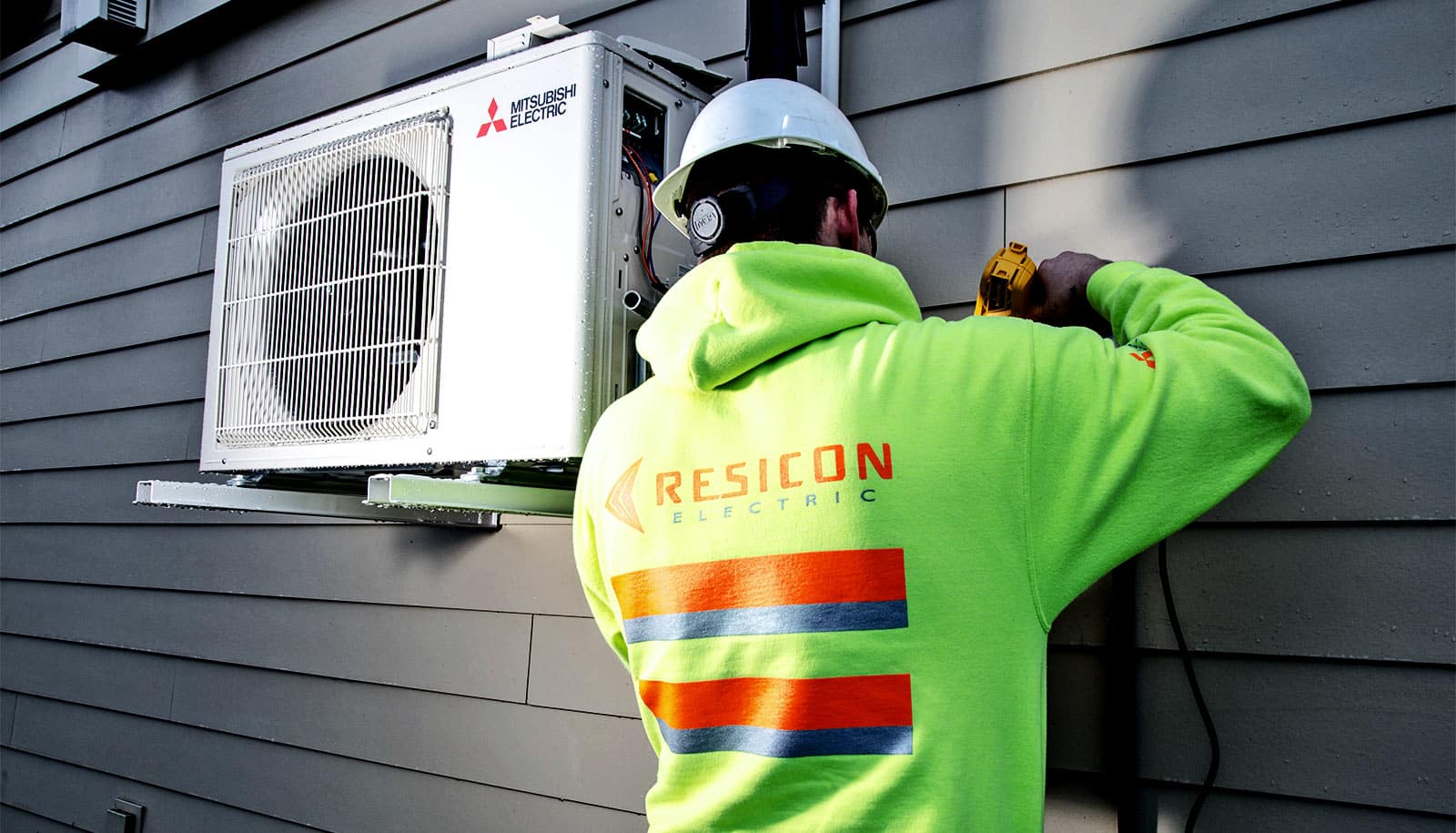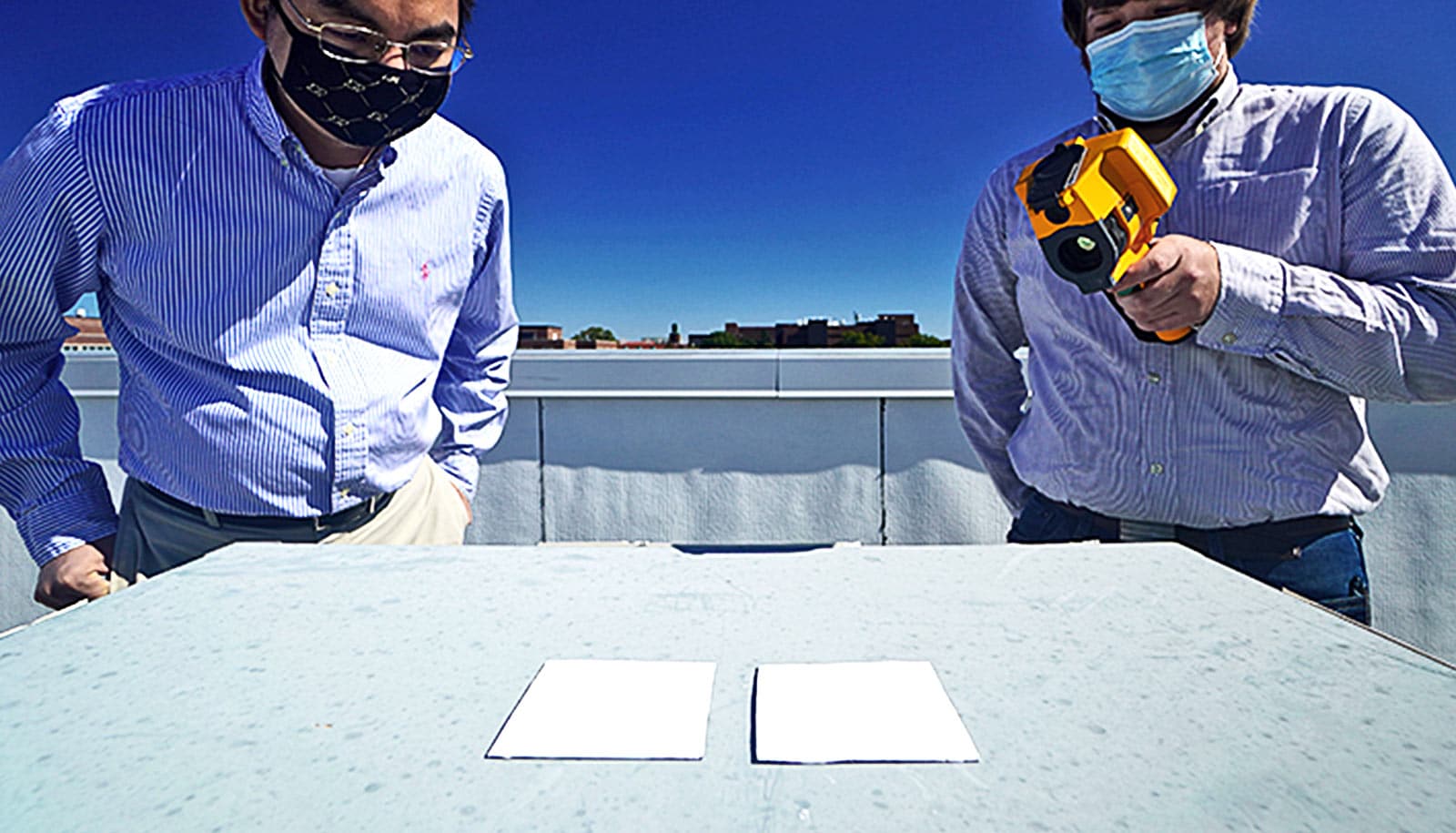Deploying residential heat pumps more widely across the United States has the potential to help reduce carbon pollution while also saving homeowners money, according to a new study.
However, in most parts of the country the electricity grid will have to get cleaner and electric heat pumps will have to get cheaper before these devices become both environmentally and financially compelling, says Parth Vaishnav of the Center for Sustainable Systems at the University of Michigan’s School for Environment and Sustainability.
Here, Vaishnav talks about the benefits of heat pumps, some of the main impediments to having more households use them, and the findings of a new study in the journal Environmental Research Letters:
What is a residential heat pump? I’ve seen them described as essentially an air conditioner that is slightly modified so that it can run in two directions, cooling the home in the summer and providing heat in the winter. Is that correct?
That’s exactly right. Heat naturally flows from hot places to cold places, just as a car will roll downhill. During the summer, air conditioners move heat from a cold place (the inside of your home) to a hot place (the outside). During the winter, air conditioners can operate as a heat pump and do the same thing, except that the cold place is the outside and the hot place is your home.
Just as you need to do some work to push a car uphill, you need to do some work to push heat from a cold to a hot place. What makes heat pumps efficient is that you usually can transfer two or more units of heat for every unit of work.
Heat pumps are widely discussed as tools to help fight climate change. How could electric heat pumps help reduce fossil fuel emissions, and what is the potential for their widespread adoption across the United States?
Most homes in the US are heated by burning a carbon-containing fuel (natural gas, propane, or oil) within the house. Doing this emits greenhouse gases. There is no easy way of eliminating the GHGs from this combustion. For example, it would be very expensive to capture small amounts of carbon dioxide from hundreds of millions of homes and sequester it permanently. However, heat pumps run on electricity, and there are many good and relatively inexpensive ways to decarbonize the electrical grid.
Our study shows that, if we assume moderate decarbonization of the grid over the lifetime of a heat pump installed today, heat pumps would cut greenhouse gas emissions everywhere. We should, however, keep two things in mind. One, heat pumps would raise heating costs for some houses, especially if we did not tax fossil fuels for the harm that they do to human health and the environment.
Second, electricity generation from coal and natural gas also produces harmful pollutants like oxides of nitrogen, fine particulate matter, and sulfur dioxide. In some parts of the country, the electrical generation mix is dirty enough that emissions of these pollutants do enough damage to overwhelm the benefits of reducing carbon dioxide emissions.
Accounting for all this, our study suggests that switching about 30% of single-family homes to heat pumps right now would cut harms to the environment and human health and save households money. We ought to begin by switching from resistive electric heating, oil, and propane to natural gas. The best places to start are the parts of the country that have a moderate climate.
We also ought to clean up the grid as fast as possible. If we commit to doing that, our previous studies show that heat pumps can reduce environmental and human health harms virtually everywhere in the country.
How was the Environmental Research Letter study done, and what was the most important finding?
We used a database called ResStock, developed by the National Renewable Energy Laboratory, to simulate 400 houses in each of 55 US cities, for a total of 22,000 houses. Each set of houses was chosen to be representative of the housing stock in that city.
We then used the US Department of Energy’s EnergyPlus model to simulate the hourly energy use for each of those 22,000 houses. We ran two versions of this analysis: one with heat pumps, and another with whatever heating fuel the house currently had. We compared these two runs to work out the benefits and costs of a switch to heat pumps.
To assess damages to human health, we used integrated air quality models developed by researchers at Carnegie Mellon. To assess harms from the environment, we used the social cost of carbon.
The most important finding was that you could save money and reduce social harms—right now—by doubling the proportion of homes that have heat pumps.
What percentage of US houses could benefit financially—in the form of reduced utility bills—from installing an electric heat pump, and what percentage of those homes could reduce greenhouse gas emissions by installing a heat pump?
About a third of single-family homes would benefit financially, after accounting for the extra cost of installing heat pumps relative to a gas furnace. All of those homes would reduce greenhouse gas emissions.
What are some of the main impediments to achieving widespread heat pump adoption across the United States?
From the point of view of a homeowner, the key barrier is the perceived higher cost of installing heat pumps. I say perceived because in many parts of the country, heat pumps would more than pay for themselves over their lifetimes. Also, if a homeowner needed to replace a furnace and an air conditioner, installing a heat pump—which can heat and cool—might be the cheapest option. Another key barrier is that installers may not know enough about heat pumps to inform customers adequately.
What is the potential for residential heat pump adoption in a cold weather state like Michigan?
In the long term, very good. In terms of their ability to “do the job,” heat pumps have gotten much better at working reliably and efficiently in cold climates. They will continue to improve. As the summers get warmer, the fact that heat pumps can also serve as efficient air conditioners will become more and more valuable.
That said, we ought to continue to invest in making heat pumps cheaper and more efficient. We also ought to invest in making our housing stock more efficient by supporting weatherization. Apart from the cold climate, one of the challenges is that the electrical grid in the Midwest is still too dependent on coal and natural gas. We ought to either shift to sources that do not produce carbon dioxide emissions at all, or we ought to capture emissions from coal and gas plants and permanently sequester them.
Additional coauthors of the study are from Carnegie Mellon University and the University of Texas at Austin.
Source: University of Michigan



